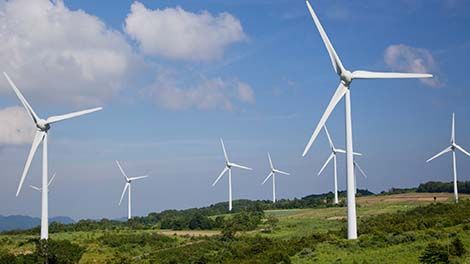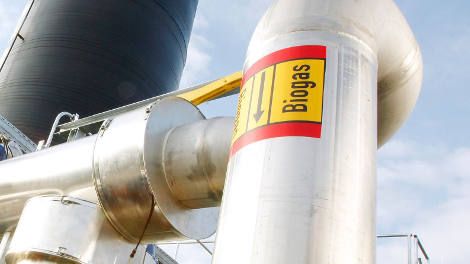Biogas - From planning to operation
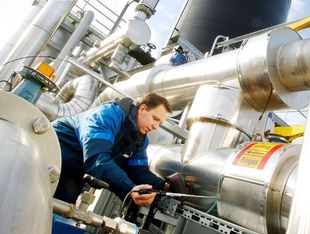
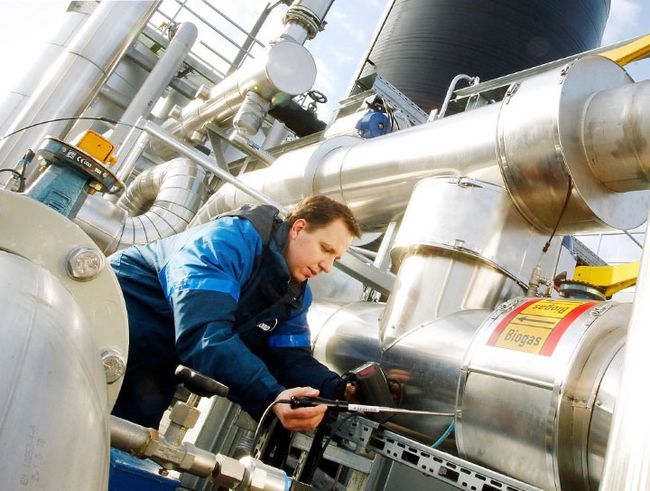
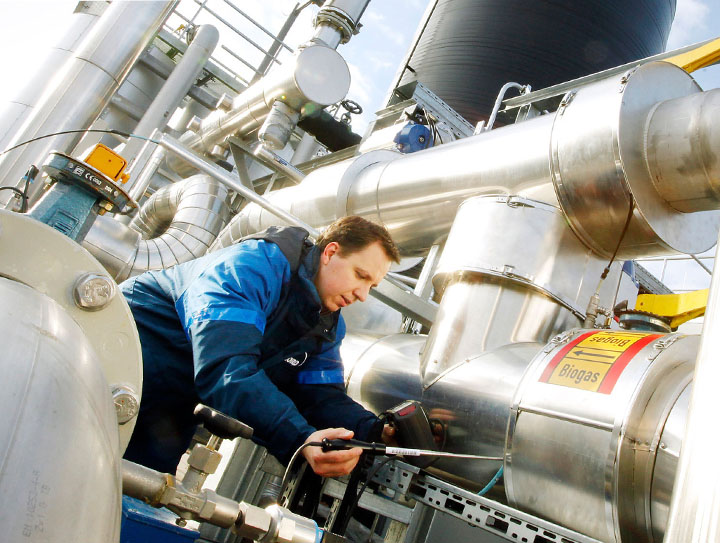

Extracting energy from biomass can be highly dangerous. Many of the intermediate and end products are explosive, flammable or toxic. To play it safe and also comply with legal and regulatory requirements, TÜV NORD provides safety inspections before commissioning.
This gives operators of biogas production installations legal certainty, reduces risks, increases availability and ensures an environmentally sound process.
The experts at TÜV NORD know the relevant regulations, standards and technical rules as well as the requirements laid down by the regulatory authorities. We can give quick and efficient help with regard to all safety issues relating to the planning, construction, commissioning and operation of these facilities.
In the course of carrying out the tests before commissioning, we take on the health and safety assessment for the biomass plant for you, looking at all the relevant aspects:
- Gas technology
- Functional safety
- Electrical
- Explosion protection
- Fire protection
- Water pollution control, emissions including odours
- Noise
The entire inspection is clearly documented in the form of a report.
The test content and the inspection documentation that accompanies the report are coordinated with the relevant authorities and are recognised by them. So you can use our report as proof of safety for official bodies, professional associations, insurance companies and investors.
The majority of the legal framework lies in different areas of law. The following are, in short, the safety checks required in a biogas plant.
- Testing before commissioning according to § 15 BetrSichV (German Ordinance on Industrial Safety and Health)
- Testing before commissioning according to VAwS (German Ordinance on Installations for the Handling of Substances Hazardous to Water)
- Testing according to § 29a BImSchG (German Pollution Protection Act)
Testing before commissioning according to § 15 Betriebssicherheitsverordnung (German Ordinance on Industrial Safety and Health)
A biogas plant is considered hazardous under the German Workplace Safety Ordinance. This means that biogas plants count as potentially explosive areas, together with pressure equipment.
The Ordinance on Industrial Safety and Health is the legal basis for carrying out the necessary checks on a plant that requires monitoring. This helps the operator provide a safe working environment for his employees and third parties, avoiding potential risks. Plants requiring monitoring must be checked for compliance with safety standards before being put into operation for the first time or after a change that requires inspection according to § 15 BetrSichV Subsequently, the periodic inspection of plants in hazardous areas (§ 16 BetrSichV) must take place at intervals of not more than three years.
TÜV NORD provides experienced experts to support the operator in carrying out his duties
- The explosion protection document and its framework conditions
- If the installation has been carried out according to the explosion protection document
- Whether the equipment is suitable for use in potentially explosive areas
- Proper installation, installation conditions and safe functioning
Testing before commissioning according to VAwS (German Ordinance on Installations for the Handling of Substances Hazardous to Water)
To guarantee the complete safety of the plant and the environment, biogas plants must be designed and operated such that water-polluting substances can not escape. This means that, amongst other measures, leakage detection is required on tanks and pipes. In biogas plants, fuel oil, diesel, lubricating oil / waste oil, liquid manure, slurry, silage effluent and to some extrent substrates are designated as water-polluting substances. TÜV NORD guarantees the highest safety standards and, in accordance with the Ordinance, inspects the plant for the handling of water-polluting substances (VAwS), including the premises, substrate containers, piping, lubricating oil, waste oil and silage storage.
TÜV NORD assists operators, designers and manufacturers in these different aspects of a biogas plant that has an impact on its quality, construction and operation.
Depending on the following circumstances, very different framework conditions and obligations may arise for the operator:
- German federal state
- Classification of the water protection area
- Additional conditions attached to the permit
- Selection, nature, design and capacity of the components
- Technical guidelines
- Approved equipment (reservoirs, pipes, building materials, equipment ...)
§29a Order of safety tests
Above a certain size, biogas plants are subject to licensing with respect to their storage capacity and / or the power of the motors used. According to the German Pollution Control Act (in §29a BlmSchG) an operator of a plant, that is subject to licensing, may be asked by the authorities to have certain safety tests conducted on the plant by notified experts, along with the checking of safety documents.
We take on the comprehensive inspection (§ 29a BImSchG) for the following areas:
- Safety concept
- Construction / installation
- Safety-related process control
- Explosion protection concept
- Evidence / test reports
- Organisation / personnel
- Requirements of the Permit
We offer a comprehensive service - from the initial consultation of the plant design, testing before commissioning and periodic inspections of the plant.
